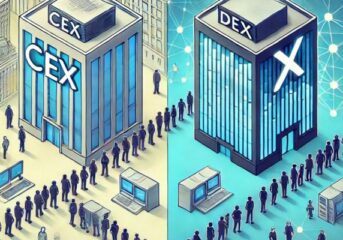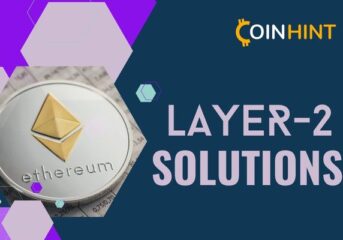What Is a Token Launch? – Everything You Need to Know
A token launch, sometimes described as a token generation event (TGE), is how projects launch the tokens that raise funds and power their applications and services. Initial coin offerings (ICO) became the primary method of launching coins and tokens and raising funds for projects in their boom of 2017, and since then several ways to launch tokens have evolved.

What Is a Token Launch?
A token launch is where a project creates and releases its tokens to the cryptocurrency market. While the terms TGE, ICO, and token launch can be used interchangeably, TGEs are often utility token launches, and ICOs are commonly security token launches.
A token launch is more than just the generation of a new token. There are complex technical aspects involved in launching token-based or blockchain projects. In addition, developers need to heavily market the token, such as with airdropping campaigns, to build support and awareness, gain users, and generate funds to ensure the project’s future.
Token Launch Types
Since the ICO boom, which replaced traditional capital raising or crowdfunding strategies, token launches have evolved and can take several routes. A token launch strategy is usually defined by the token’s purpose. For example, a meme coin token sale focuses on selling the meme token. In contrast, Ethereum’s massive ICO of 2014 raised awareness and funding for the development of the blockchain network that now hosts thousands of ERC-20 tokens and applications.
Initial Coin Offering (ICO)
ICOs emerged as a way for crypto and blockchain projects to raise capital by selling tokens. There have been thousands of ICOs, and around 80% of those that took place in 2017 emerged as scams. That said, successful ICOs include the launches of Ethereum, NEO, EOS, Cardano, and Polkadot.
Initial Exchange Offering (IEO)
Alternatives to the ICO have grown in popularity in recent years, including initial exchange offerings (IEOs) and launchpad token launches. These token launches take place on a trusted third-party website or a crypto exchange that performs a level of due diligence before listing and promoting a token launch. The Binance Launchpad, for instance, is a platform to launch IEOs in a secure environment, which provides projects with exposure to millions of Binance users. Launchpad projects can receive support from Binance experts and must provide access to the token sale must-haves like the whitepaper, website and research report. Launchpad tokens go on to be listed on the Binance exchange for trading.
Security Token Offering (STO)
Security token offerings (STOs) are like ICOs, but the tokens are considered securities and, as such, are subject to regulation. Security tokens represent ownership of tangible or intangible assets such as equity in a company, real estate or art.
Initial DEX Offering (IDO)
An initial DEX offering is like an IEO, but the token is listed on a decentralized exchange (DEX), and is either approved by the DEX community or doesn’t have to go through an approval process at all. IDOs are usually for fundraising, to distribute tokens or to build liquidity.
The Token Launch Process
An actual token launch will depend on the project and purpose, the team’s goals and its efforts to make the project successful. The steps can be grouped into pre-launch, marketing, launch and post-launch. However, in reality, there may be many more steps, especially for more technical projects.
Pre-Launch Preparations
A token pre-launch will consist of detailed planning and technical development work. The project will need to build its website, whitepaper, tokenomics, and token sale terms, and ensure compliance with relevant laws and regulations.
Marketing and Community Building
Extensive marketing and community building are essential for a successful token launch. After all, investors won’t buy if they’re not aware of the launch, the token, or the project’s benefits. A strong, real community backing is often the key to a credible token launch.
Launch Day
Preparations and marketing will continue through launch day, which is the first real test of a token. Some of the most successful ICOs and token sales raised significant capital in the first few days of the token launch.
Post-Launch Activities
Post-launch, the project will need to deliver on its promises to encourage investors to buy the token and welcome them into the project’s community so they can continue to support it. In the case of utility tokens, applications, and services, the project will want to see investors participating in the platform.
Benefits of Token Launches
Early Access
Token launches provide investors with an early opportunity to purchase heavily anticipated new tokens. In the case of utility tokens, investors might want to take advantage of the utility offered such as participating in governance and earning rewards or using the token to access the project platform or service. In the case of security tokens, investors may want a first chance to own the asset in the hope the tokens will accumulate in value.
Supporting a Project
Token launches are an investment opportunity as well as an opportunity to support the development of a project and become more involved. Owning the token may allow an investor to participate in network validation or governance, facilitate the network, or even vote in project decisions.
Risks and Challenges
Scams and Weak Projects
There are still many illicit actors in the crypto space which means that token launches and token sales can still be scams or weak projects designed to make the creators a quick buck, without any real benefit to an investor. Tokens can plummet in value immediately after a sale, or the project can simply be pulled or vanish from the market.
Lack of Regulation
Crypto regulation is still evolving and is often either inconsistent or non-existent, leaving investors with no recourse if something goes wrong. Scam projects and illicit actors can easily enter the market and appear to be credible projects.
Market Volatility
Cryptocurrency prices are inherently volatile. Even if a project is credible and has long-term potential, token values can still go up and down in response to market factors and influences.
Technology
As well as scams, there are technological risks. For example, if smart contracts are built incorrectly or have vulnerabilities, the project or exchange is hacked. A token’s value not only depends on the market but also on the success of the project with which it’s connected.
How to Participate in a Token Launch
Researching the Project
Token launches and token sales are incredibly risky for investors who must conduct thorough research and due diligence. Research starts with a good knowledge of different types of cryptocurrencies and tokens as well as an understanding of their risks. It also involves an evaluation of the project, including the whitepaper, team, tokenomics, compliance, technical strength and community. Investors should always understand their own risk tolerance and never invest more than they can afford to lose.
Setting Up a Wallet
Anyone wishing to buy tokens in a token launch from the project’s website, launchpad or the exchange or DEX, will be required to open a crypto wallet if they do not already have one.
Purchasing Tokens
After thorough research, token purchases can be completed with ease, by following the project or exchange instructions. Investors may need to purchase another cryptocurrency to exchange for the new token.
Conclusion
Today, a token launch can vary in its approach based on the project goals and the recipient audience, leaving investors with several paths to purchase new tokens. With regulation still lacking, there are still many scams, illicit actors, or simply projects that won’t succeed. Our CoinHint analysts would advise investors to always conduct in-depth research, be aware of the risks, and know their own risk tolerance.
FAQ
-
What is the difference between a token and a coin?
Cryptocurrency coins have their own native blockchain. In contrast, tokens are usually launched on an existing blockchain like Ethereum ERC-20 tokens on the Ethereum network.
-
Are token launches legal?
Legalities and regulations pertain to token launches and sales, and crypto regulation is still evolving. Regulations and restrictions will vary from region to region and depending on the type of token being launched.
-
How can I ensure the legitimacy of a token launch?
Thorough research is essential before any crypto purchase and even more so for new token launches where scams and weak projects can proliferate. Research should start with the project’s technicalities, whitepaper, tokenomics, compliance, team, community, and the token sale terms.
-
What are some examples of successful token projects?
Successful token projects, which include popular ERC-20 tokens, can be discovered on sites like CoinMarketCap and CoinCodex, which display current value, market capitalization, and historic performance, although success can go beyond value and be based on how the project’s technology is serving or will serve its audience.







